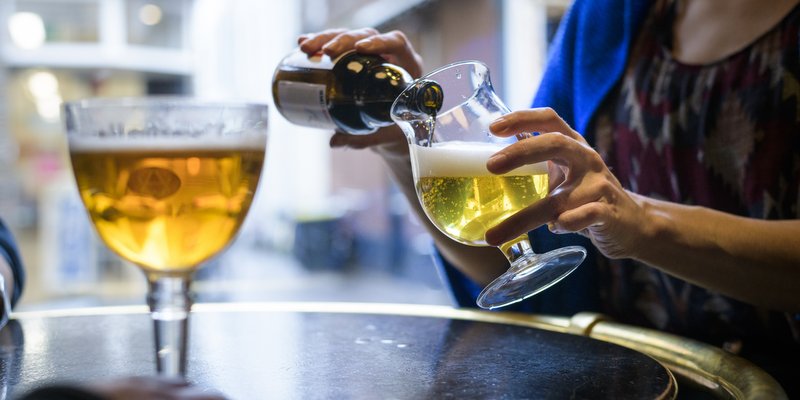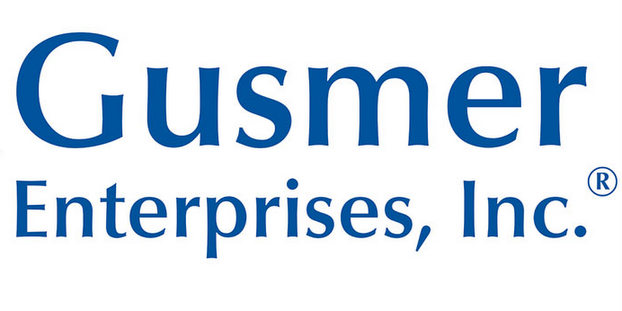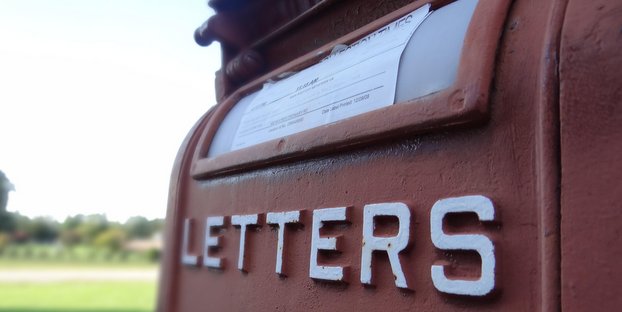Enzymes have been widely used in Big Beer brewing for a while now. They help to maintain large production and even are used to modify recipes to create customized beers like low-calorie or “light” beer. As far as craft brewing is concerned, there are relatively few brewers who are using enzymes and even fewer who will talk about it. That’s not to say there’s anything inherently wrong with brewing with enzymes — in fact, enzymes could present an opportunity for craft brewers looking to fill a niche.
“Gluten-reduced beer is a huge area where a lot of enzymes are being used,” said Jason McCammon, technical sales for Specialty Enzymes and Biotechnologies, a company that specializes in the production of plant, microbial and animal-based enzymes. “Some brewers choose to use an enzyme process of degrading the gluten molecule to reduce the gluten content of beer made from barley, while others are trying to make beer from actual gluten free grains using enzymes to convert the starch to sugar. You have to use something to convert the starch and make it available to the yeast as sugar. If you can’t use malt, from the typical malted cereal grain, then some brewers use commercial enzymes.”

There are a variety of available enzymes that can be used in brewing for a multitude of purposes. Big Beer often uses a glucoamylase for light beer production, while some craft brewers have gravitated toward alpha and beta amylase supplementation. A proline endo-protease is an up-and-coming enzyme starting to see some wide use in craft breweries.
“There are also clarification enzymes — throw in some papain or another protease and that can help you settle out the chill-haze forming proteins, but if you throw too much in, you destroy the head on your beer,” McCammon explained. “There’s a sweet spot and most people don’t want to take the time to figure out where it is.”
So what exactly is an enzyme?
Basically, an enzyme is a protein. A complex one at that. Taber’s Cyclopedic Medical Dictionary defines enzymes as “complex proteins capable of inducing chemical changes in other substances without being changed themselves.” Enzymes are natural products of many living things, and they occur in everything from human spit to the mold in the bathroom. As such, many companies have taken to turning these enzymes into commercial products to naturally alter foods, beverages and more. Take Specialty Enzymes, for example. The company was started when the founder, L.C. Rathi, pioneered the extraction of papain, an enzyme complex derived from papaya fruit and widely used for pharmaceutical and medical purposes.
For brewing, enzymes increase starch liquefaction and saccharification, which in turn increase the production of fermentable sugars. These enzymes can help reduce viscosity, support yeast during the fermentation process and even chill-proof/extend the shelf-life of beer. Or sometimes, enzymes can help smooth out a batch of grain that varies too far from what a brewer’s recipe calls for.
“Gluten-reduced beer is a huge area where a lot of enzymes are being used. Some brewers choose to use an enzyme process of degrading the gluten molecule to reduce the gluten content of beer made from barley.” — Jason McCammon, technical sales for Specialty Enzymes and Biotechnologies“A lot of people are using locally sourced grain. That presents a couple of problems because there’s not always as much quality control compared to the large grain providers,” McCammon said. “Sometimes those grains need to be dealt with using an outside enzyme if they have too much protein — brewers use protease for that — or if there’s too much beta glucan, and you’ve got a stuck mash, you can use a beta-glucanase.”
A major concern of craft brewers who focus on natural products and even strive for an organic seal on their bottles is if they can organically certify a beer that uses enzymes. The short answer is no. However, brewers do have a few options.
“If it’s a 100-percent organic-certified product, you can’t use enzymes. If you’re doing a 95 percent organic rule, you could use enzymes,” McCammon stated. “The enzymes themselves can’t be declared organic because they’re grown on non-organic media. They’re sourced from generally recognized as safe organisms [GRAS]. There’s nothing wrong with these enzymes (they are purified), but just as a brewer finds a sweet spot in his or her brewing process and refuses to change, an enzyme company is not going to switch its process because some brewer wants an organic enzyme.”
The enzyme alternative
In 2009, Novozymes, one of the largest players in the enzyme industry (which also boasts companies like DSM and DuPont Industrial Biosciences), launched a study that probed the possibility of 100 percent barley beer using Novozymes’s Ondea Pro, which enables breweries to produce beer directly from barley. The study, entitled “Comparative Life Cycle Assessment of Malt-based Beer and 100-percent Barley Beer,” was undertaken by a Danish Brewery Harboes Bryggeri, which utilized 7 tons of extract, after boiling. Once fermentation took place, 7 tons of extract was used to produce 680 hl (roughly 579 barrels) of beer with an alcohol by volume strength of 4.6 percent.
The categories of impact recorded by the study were global warming, acidification, nutrient enrichment (eutrophication) and photochemical ozone formation. And the result of the study?
“Shifting from conventional brewing to 100 percent barley brewing saves the energy and water that goes into malt production. Furthermore, it saves 7 percent barley seen over the full life cycle. It also saves energy in the mashing and the boiling process and enzymes used for conventional brewing. On the other hand, more electricity is used in milling because barley is harder to grind than malt. Furthermore, Ondea Pro must be added to the mashing process.
“Seen in a life cycle perspective, 100 percent barley brewing results in environmental benefits in all investigated impact categories. For global warming, the net savings are 1740 kg CO2 eq. per functional unit (FU). This is equivalent to 174 kg CO2 eq. per ton of malt replaced. In this aspect, the saved energy in the malting process is the most important issue (1590 kg CO2 eq./FU). Saved barley is also important (441 kg CO2 eq./FU) and so is the change in the mashing process (-301 kg CO2 eq./FU) mainly caused by the addition of Ondea Pro. Other aspects turn out to be of minor importance for the results.”
Taste test
How does a beer brewed with enzymes taste? Well, for those who use enzymes as supplements, chances are you’ve had enzymes in beer and didn’t know it. As for beer brewed primarily from enzymes, McCammon admits there’s nothing quite like the real thing.
“I’m an absolute believer that malted barley is unparalleled in the flavor it provides,” he said, expressing his opinion. “There’s nothing that can mimic it. Unless you’re making something like a light or light-in-style beer, then the enzymes can’t produce the complexity that regular malted barley can.”
As the craft brewing segment grows, McCammon expected that interest could grow from brewers looking for new brewing possibilities.
“A lot of distillers are working with enzymes. I’m wondering if there’s going to be some carry over,” he said. “The new generation of brewer is more open to enzyme use. The old generations definitely have problems with it. It’s a means to an end. You can increase efficiency, but absolutely throughout the next few years, we’re looking at a gluten-reduced trend.”





Check out an article featuring one of our people http://t.co/GHwjdo1FVu written by the good folks @CraftBrewingBiz. Cheers!